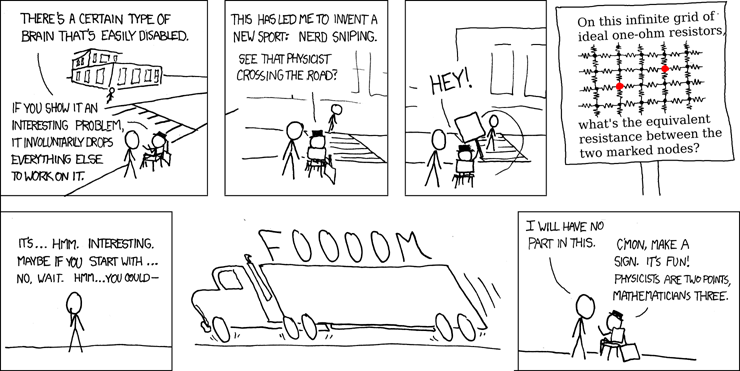St.Steezy
Active member
May as well try here...
I need some help on solving the problem posed in this cartoon, http://www.xkcd.com/356/ . Its a bonus question on my assignment and I may as well give it a shot. Its probably above 99% of the math/physics comprehension of ns.. but you never know.
Cheers.
I need some help on solving the problem posed in this cartoon, http://www.xkcd.com/356/ . Its a bonus question on my assignment and I may as well give it a shot. Its probably above 99% of the math/physics comprehension of ns.. but you never know.
Cheers.
